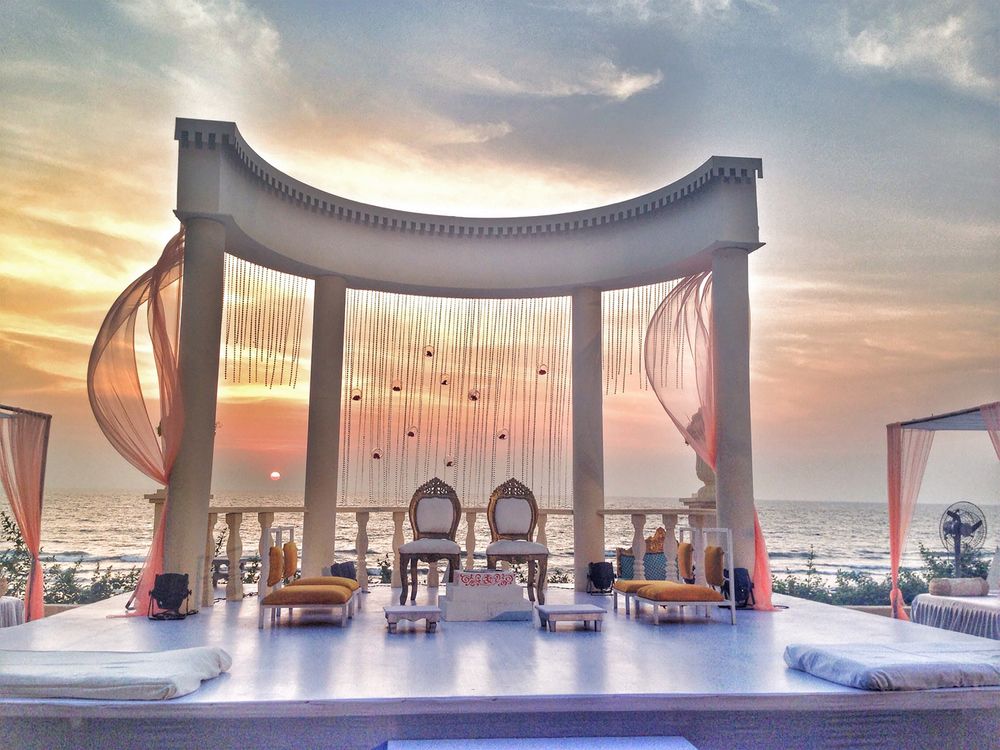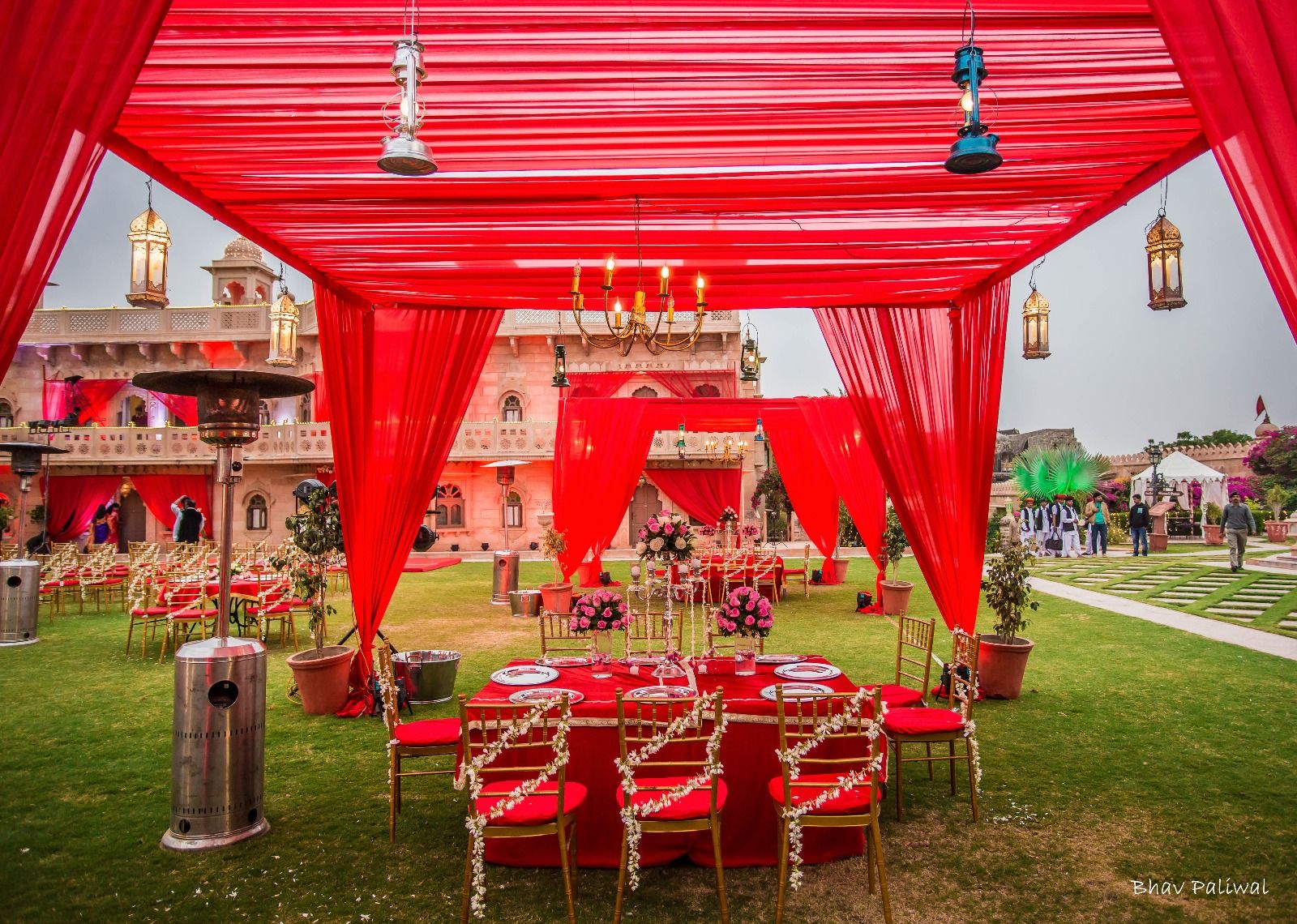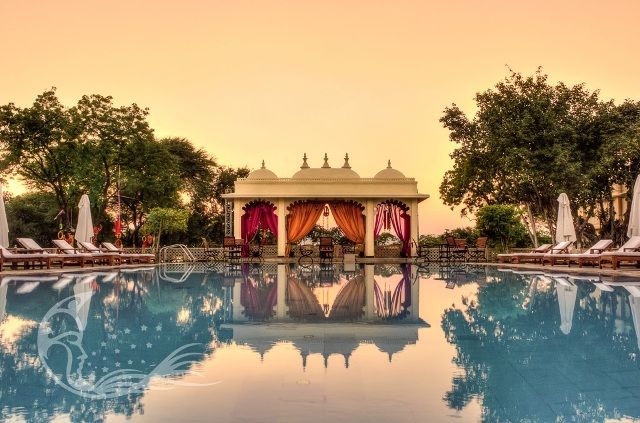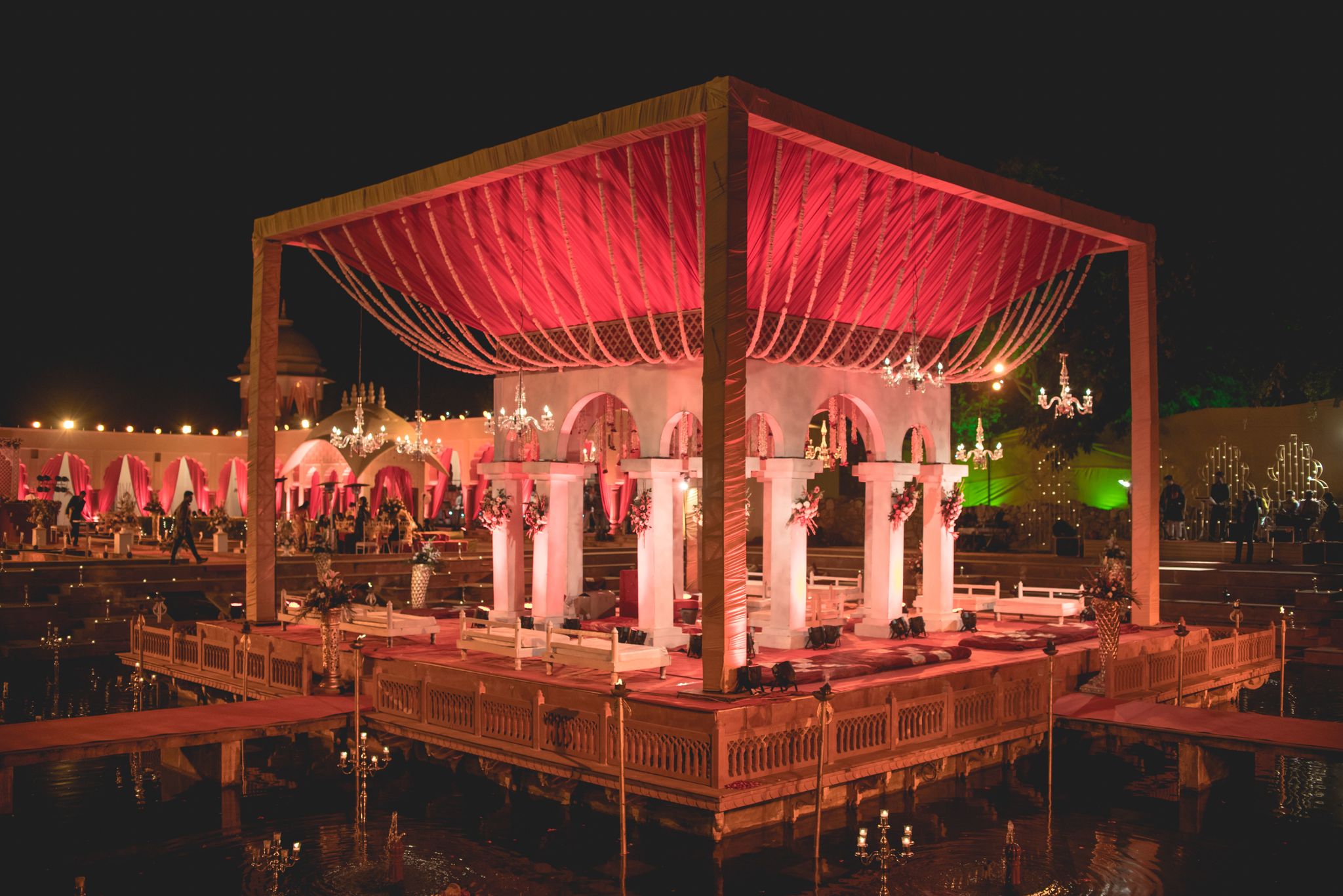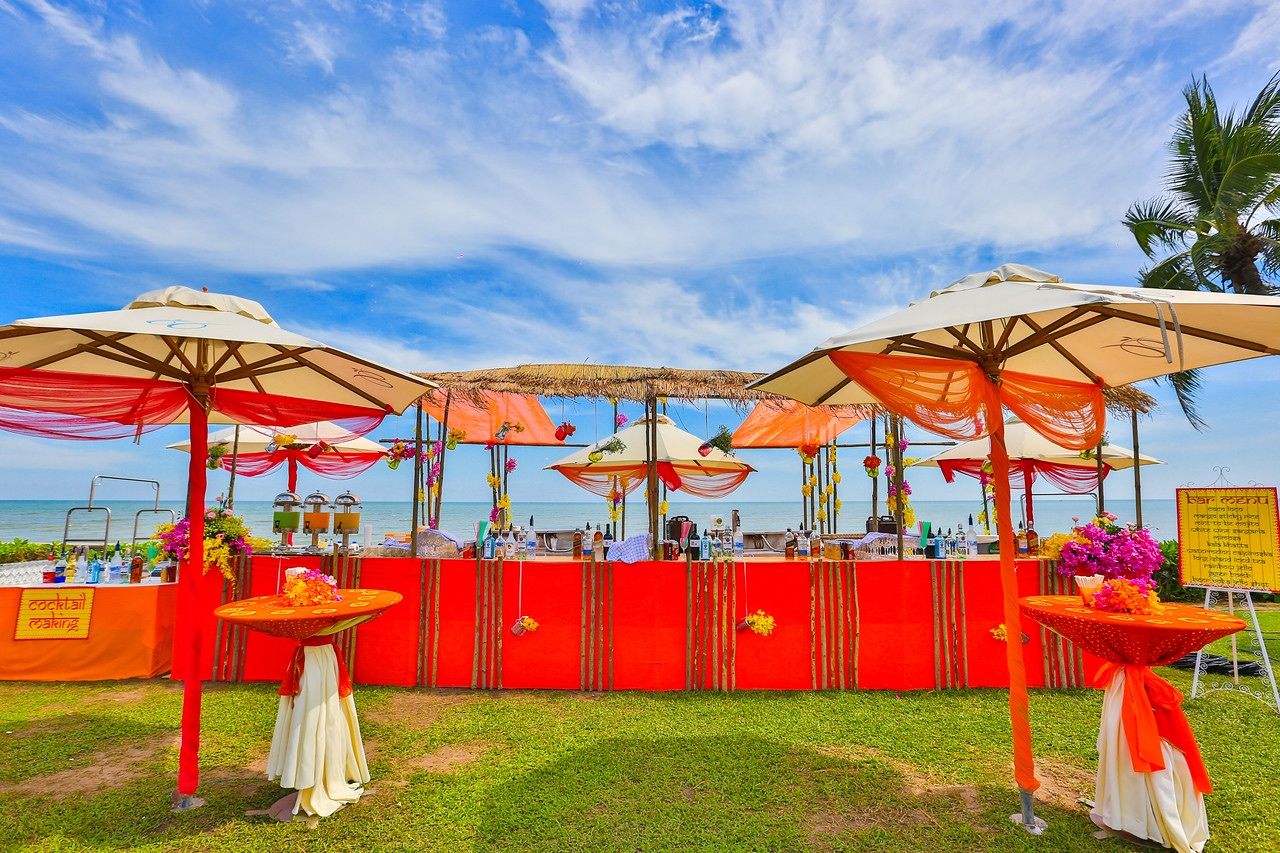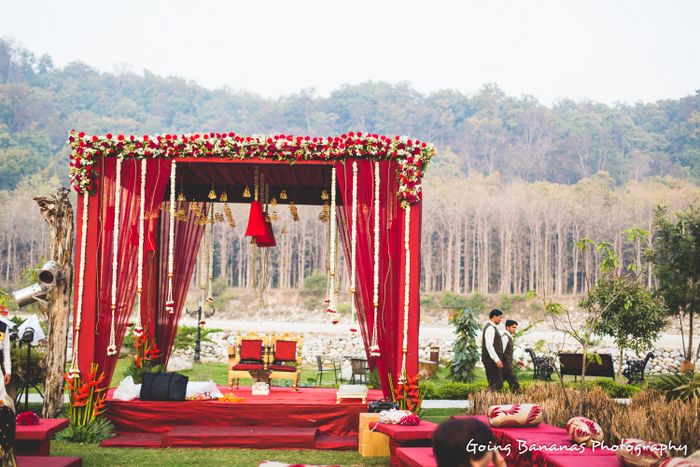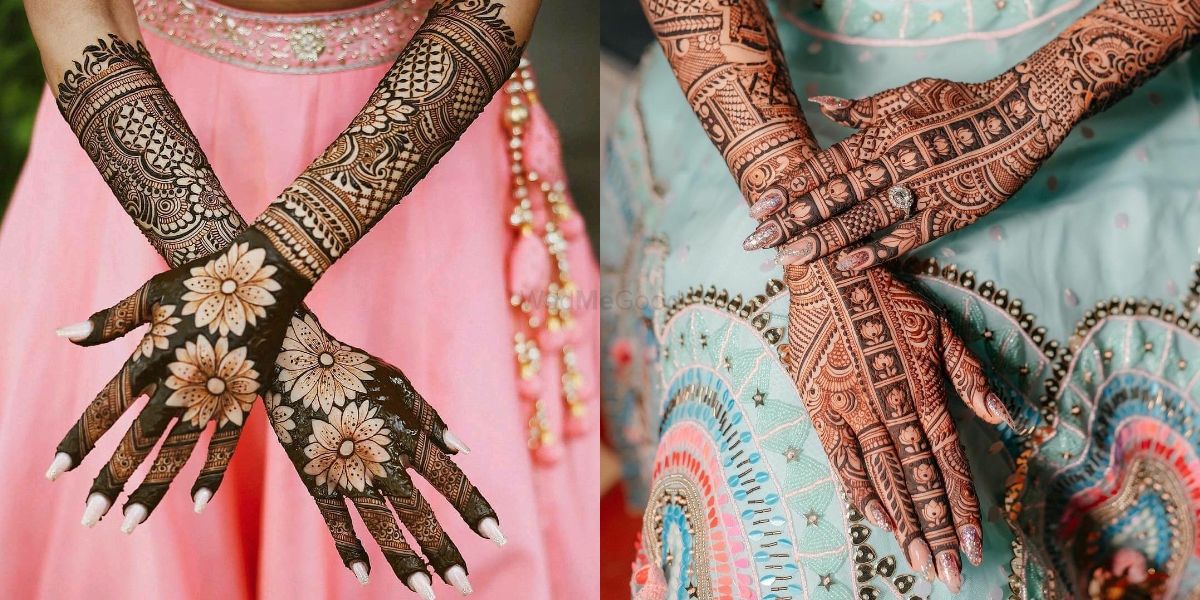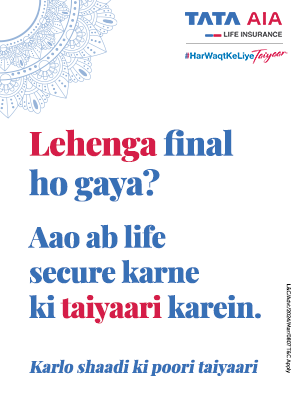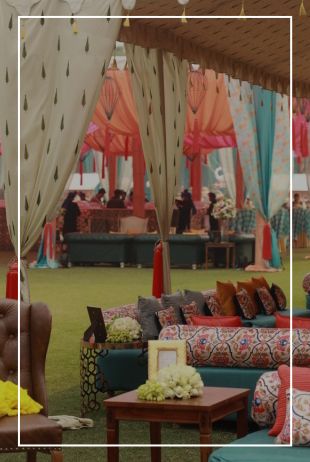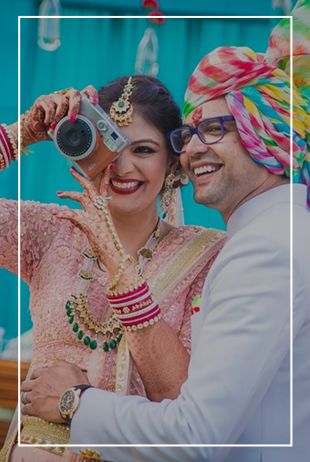The Ultimate Islamic / Muslim Wedding Guide: Rituals, Traditions & More
BY Apoorva | 20 Mar, 2024 | 1268 views | 7 min read
Weddings are not just about couples getting married, it's also about bringing two families together and celebrating cultural and religious Muslim wedding traditions. In Islam, weddings are rich in heritage and Muslim wedding rituals are passed down through generations. There are a variety of Islamic Muslim wedding styles that differ from country to country. For today’s guide, we will be going ahead with the South Asian Islamic Muslim wedding context. Some events and ceremonies in Muslim weddings share similarities with other South Asian wedding events, while some are exclusive to the Muslim community.
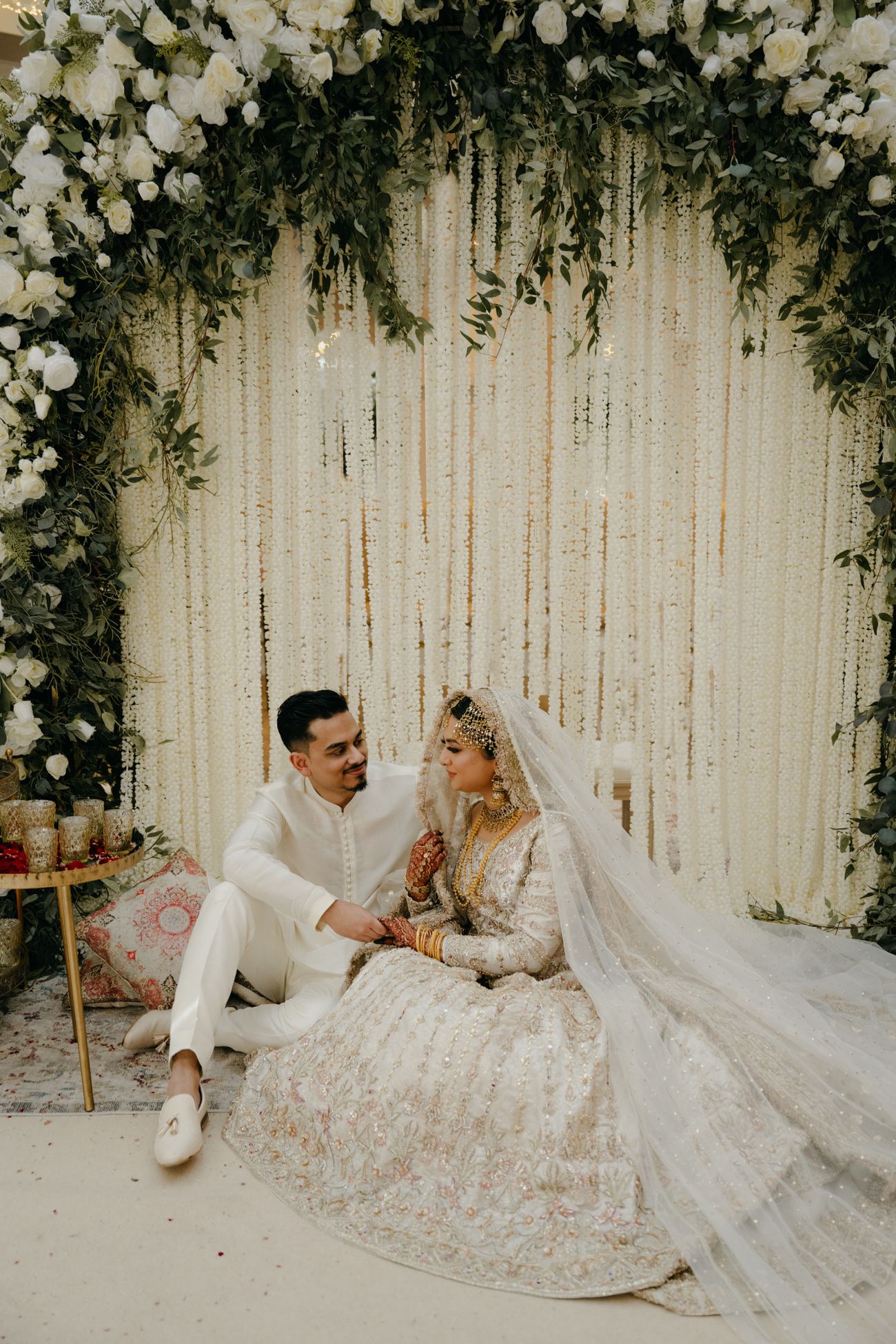
Image via Anika and Nishad
Whether you're attending your first Muslim wedding or planning your own, it's important to understand the customs. This guide will give you all the ins and outs of Muslim weddings, covering Muslim wedding traditions and customs that happen in the pre-wedding as well as Islamic marriage ceremony nikah.
Pre-Wedding Events In An Islamic Marriage Ceremony
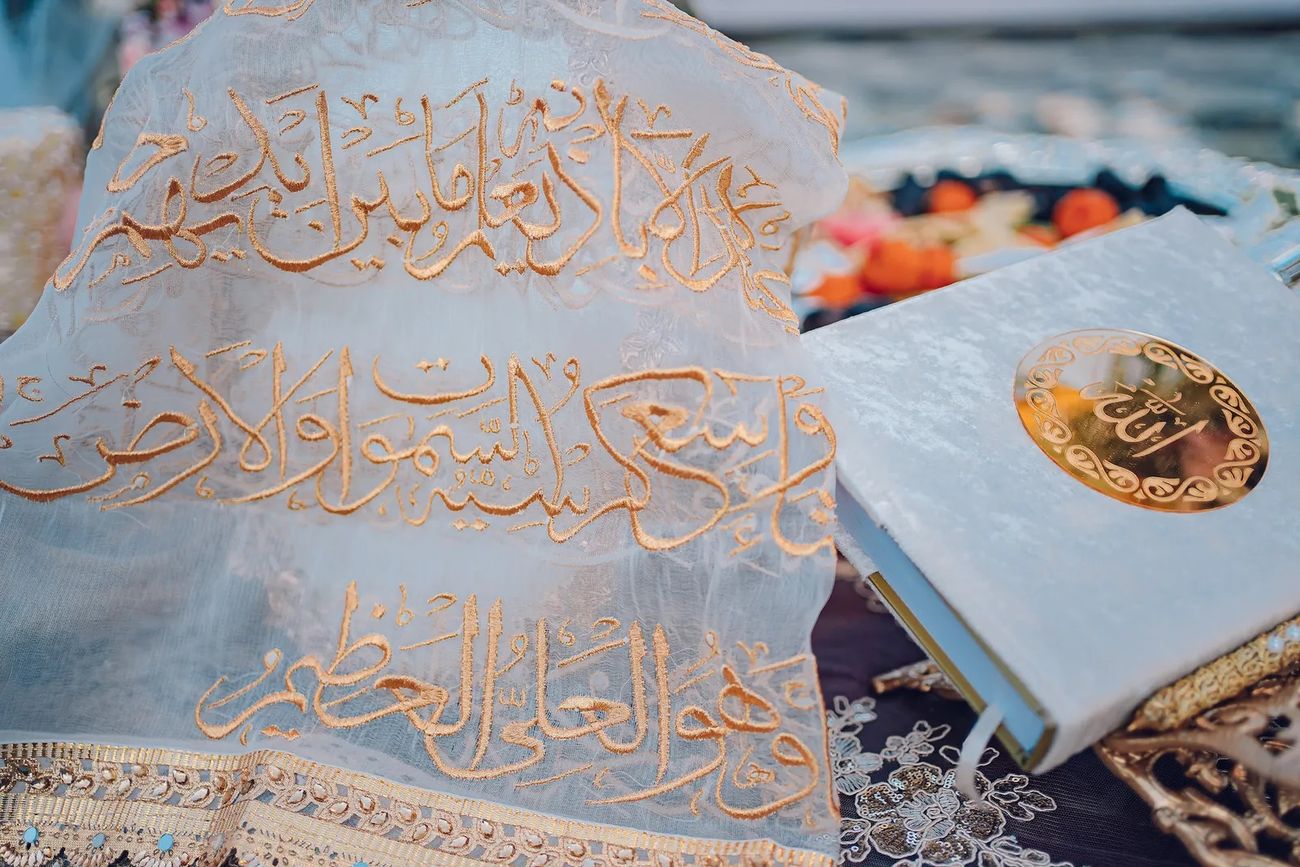
Image via Stories by Joseph Radhik
Zabaan - First Meeting
The first event in an Islamic Muslim wedding is the initial meeting. In this meeting the groom’s family meets the bride’s family and formally asks for her hand in marriage. They bring gifts and sweets for the Muslim bride, as a way to sweeten the meeting. Only when the bride’s family gives acceptance to this union, the marriage is formally fixed. This acceptance is called zabaan (A word of promise)
Engagement
In every Islamic Muslim wedding, the first event in the engagement. Engagement parties are all about celebrating the upcoming Islamic marriage ceremony nikah, and Indian ones add a special touch. Here, the groom pops the question and presents the ring during the event. After that, the talk shifts to wedding details like dates for pre and post-wedding events. It's a mix of joy and planning in one big celebration!
Find out the best Muslim wedding dates for 2024 here!
Mayoon Ceremony – Haldi
As part of their tradition in a Mayoon ceremony, the groom's mom applies turmeric on the bride's skin. The belief is that it gives the Muslim bride a healthy glow. This event is usually kept private, just for the ladies in the family. For different parts of the world, this mayoon ceremony may have slightly different muslim wedding rituals and customs, but it’s a pre-wedding haldi ceremony of sorts. In some parts, it’s also called Manjha
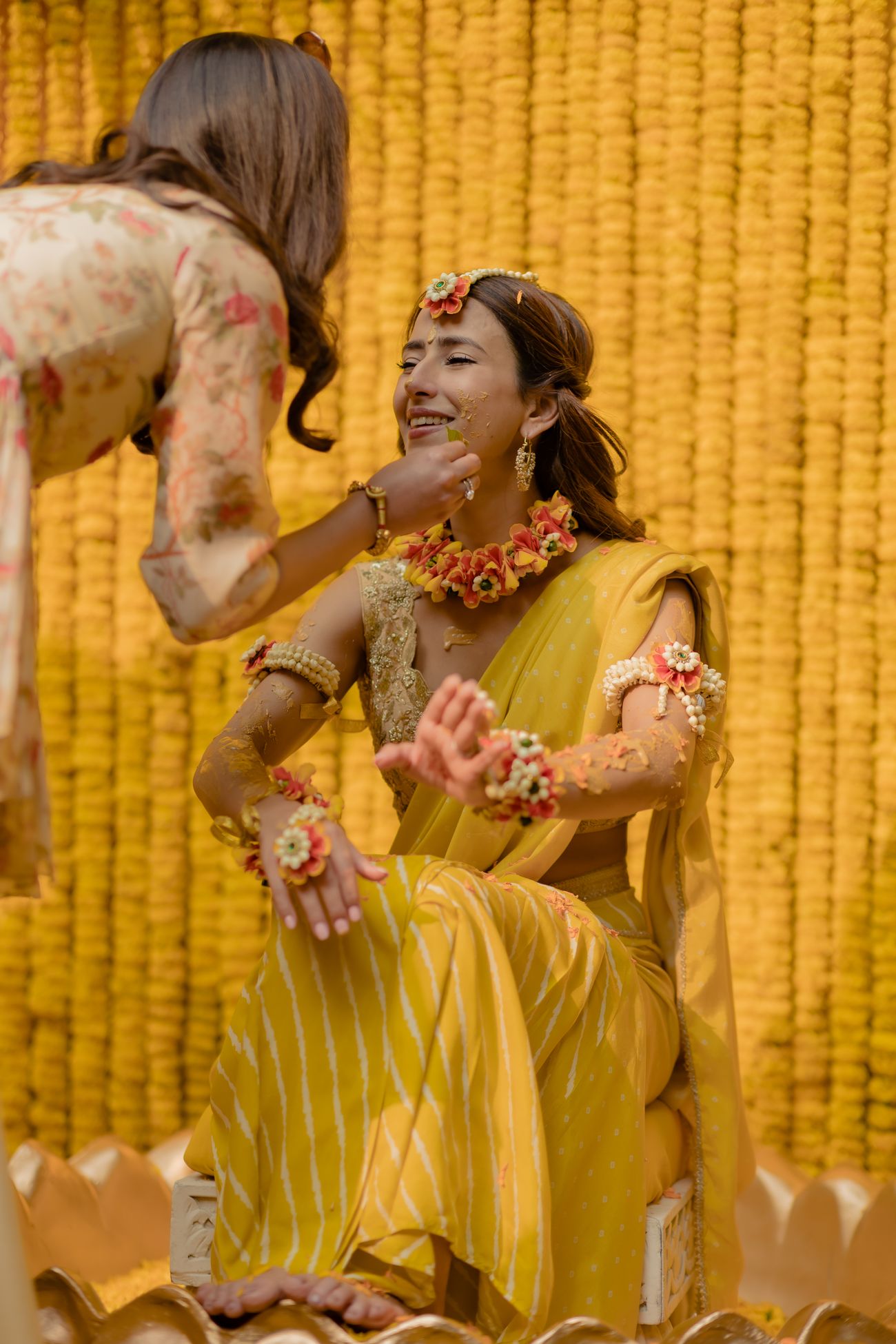
Image via Nanaki and Azaan
Mehendi
The Mehendi ceremony in Muslim weddings is a joyful pre-wedding event where henna is applied to the Muslim bride's hands and feet. It's a vibrant and festive occasion filled with music, dance, and intricate henna designs. The ceremony is typically held a day or two before the wedding, and it brings together family and friends to celebrate the upcoming marriage. The application of henna symbolizes beauty, good luck, and the bond between the soon-to-be-married couple. This is also usually a ladies-only event!
Wedding Events In An Islamic Marriage Ceremony
Mehr Ceremony – Bridal Gift
Mehr, also known as Mahr or dower, is a mandatory payment made by the groom to the bride as a financial commitment. It is considered a form of security for the Muslim bride and is specified in the marriage contract agreed upon by both parties. This happens before the Islamic marriage ceremony nikah.
During the Mehr ceremony, the groom presents the agreed-upon amount or gifts to the bride as a token of his commitment and responsibility. This practice emphasizes the financial rights of the Muslim bride within the marriage and serves as a protective measure for her future. The Mehr is considered the Muslim bride's exclusive property, and she has the right to use it as she wishes. This ceremony holds cultural and religious significance, symbolizing the groom's obligation to provide for the bride's financial well-being in the marriage.
These Muslim Brides Made Us Skip A Heartbeat With Their Ethereal Nikaah Outfits

Image via Muaz Got This
Islamic Marriage Ceremony Nikah – The Wedding Ceremony
The Nikah is a religious wedding ceremony, and its location can vary. Some opt for a local Mosque/Masjid, while others choose a home or venue. Usually officiated by a religious figure, like a Maulvi or Maulana, the ceremony involves two Muslim witnesses. The Maulvi recites a Quranic prayer and seeks consent from the Muslim bride and groom. The bride, when asked, agrees to the mehr and marriage by expressing her acceptance three times, often using the phrase 'Qubool Hai' (I accept). During this, the bride and groom may be in separate areas, though some families have them together.
After the bride's consent, the Maulvi seeks the groom's agreement. Once both agree, they come together to sign the Nikahnama (marriage contract), officially making them religiously married. A brief sermon may follow. Typically lasting around 30 minutes, the Nikah process concludes with the signing of the marriage contract.
Looking for some bridal look inspiration, check out 12 Muslim Brides Who Were The Epitome Of Elegance At Their Nikah
Also, The Most Stunning Shararas & Ghararas For Muslim Brides
What Are The Requirements Of An Islamic Marriage Ceremony Nikah?
The Nikah ceremony involves several essential practices or steps. It's crucial to note that these may vary across Muslim weddings due to cultural differences among families.
-
Mutual Consent Agreement: Both the bride and groom must agree to the marriage.
-
Legal Guardian or Representative (Wali): Typically the bride's father acts as the guardian.
-
Two Adult Muslim Witnesses: Either two males or one male and two females must be present.
-
Mahr: The groom presents a gift to the bride.
-
Written Marriage Contract: A contract is drafted and signed by the couple, along with the two witnesses.
-
Kadi: The Muslim judge or Islamic officiant, often the Imam, legalizes the union.
-
Sermon and Du'aa: A sermon is delivered to bless the marriage, accompanied by supplications.
Arsi Mushaf – First Look
In the Arsi ceremony, "Arsi" refers to a mirror and "Mushaf" to the Holy Quran. This wedding ritual involves the groom seeing the reflection of his bride's face in a mirror held between them.
Check out the #Trending – Stunning Floral Nikaah Pardas To Elevate Your Wedding Photos
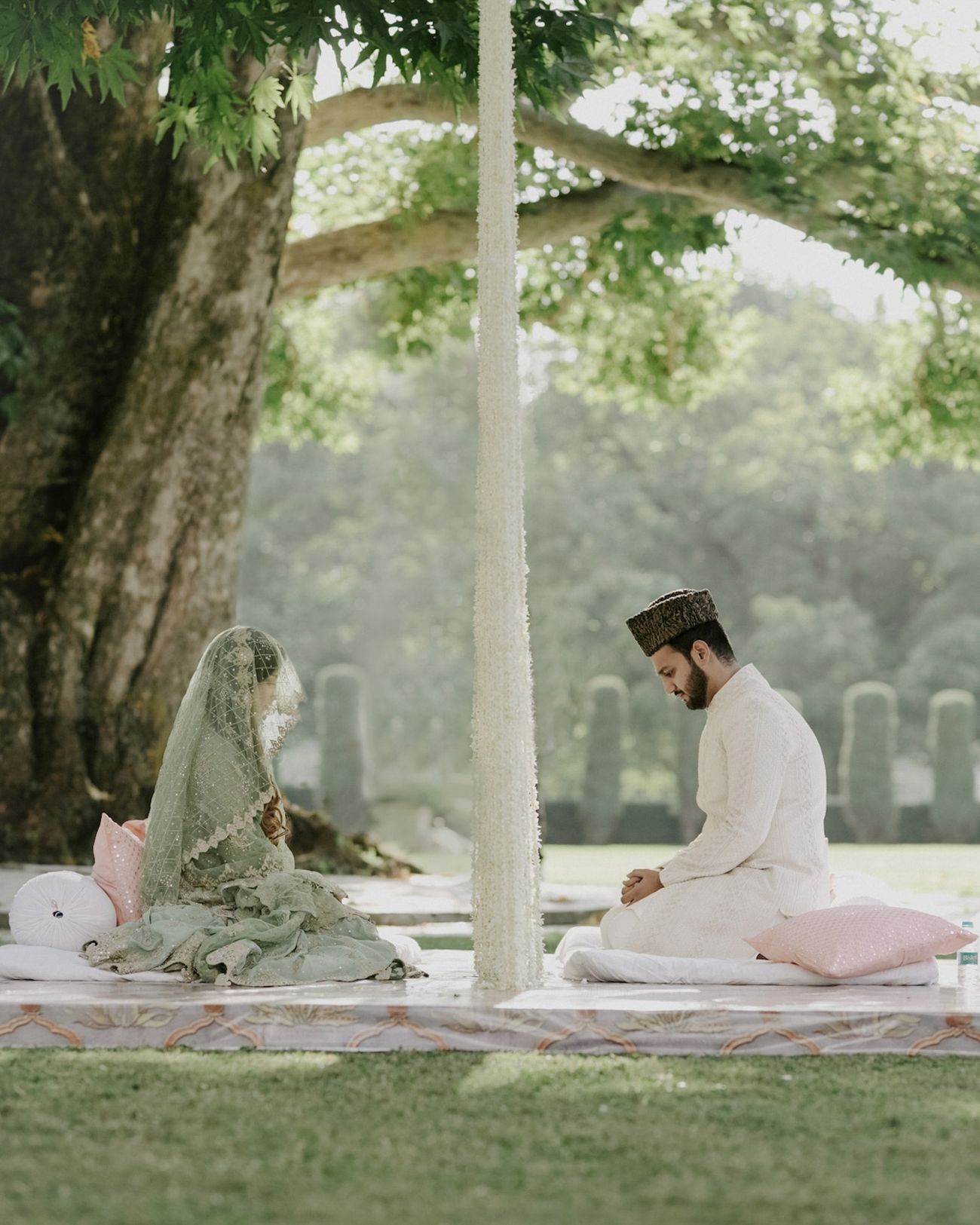
Image via Huzaifa and Burhan
Dua – Prayer Ceremony
These prayers are heartfelt wishes for the newlyweds, seeking blessings for a joyous and enduring marriage. The IMAM leads this ritual, and as everyone earnestly focuses on Allah, they seek happiness, fertility, and, most importantly, good health for the couple. These prayers are seen as a way to fortify their faith as they embark on a new life together.
Walima – Reception
Walima is the wedding reception or feast held after the Nikah ceremony. It is a significant event where the newlywed couple, along with their families, hosts a celebratory meal to share the joy of their union with friends, relatives, and the community. The Walima is a gesture of hospitality and an opportunity for the couple to express gratitude for the blessings of their marriage.
This reception typically takes place a day or more after the Nikah and may be hosted at a banquet hall, community centre, or even at home. The menu often includes a variety of dishes, reflecting the diverse culinary Muslim wedding traditions of the region. The Walima is an integral part of the overall wedding festivities and is marked by a warm and festive atmosphere, with guests coming together to offer their best wishes and celebrate the beginning of the couple's new life together.
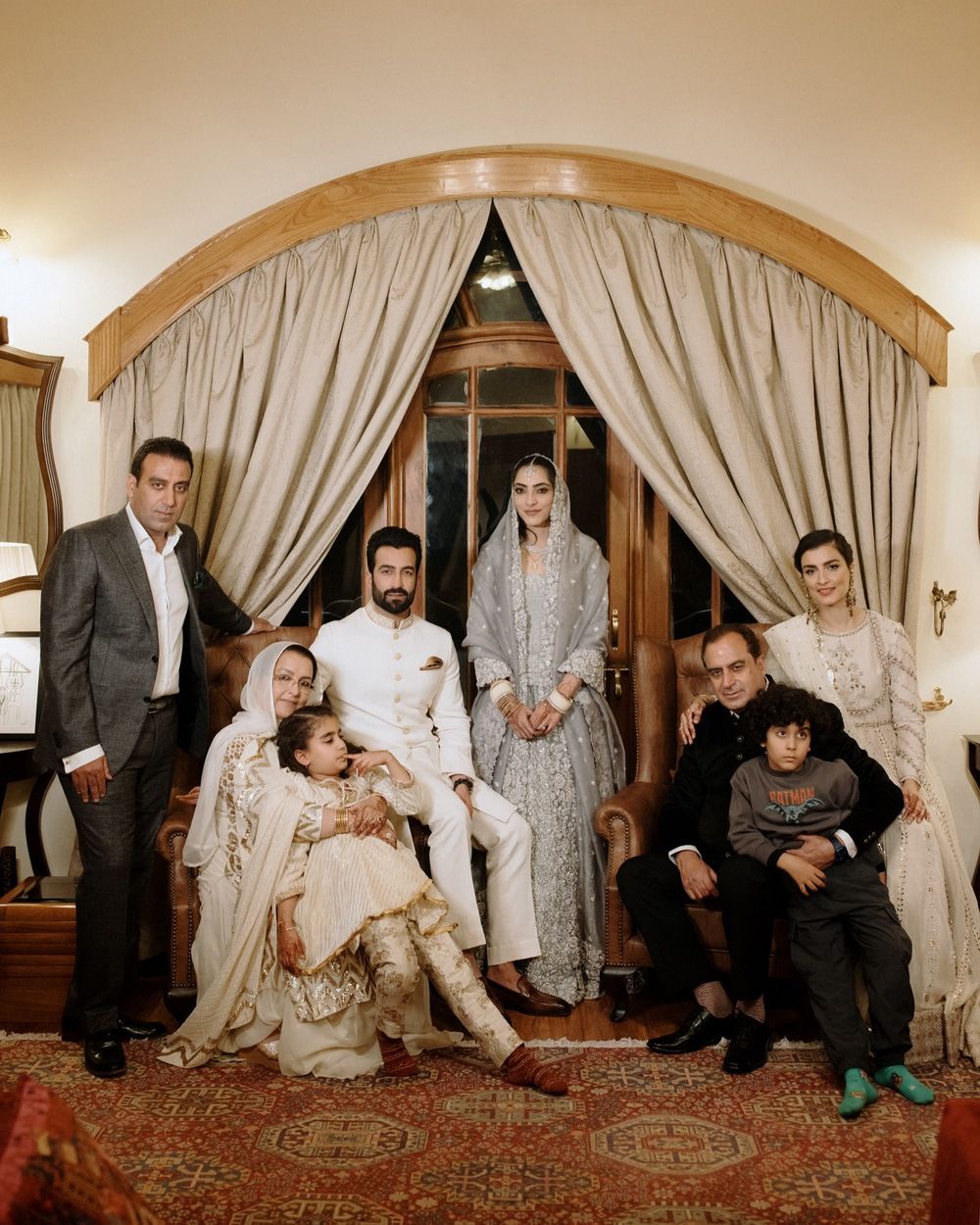
Image via Zina and Zain
Rukhsati – Badaai/Bridal Farewell
Rukhsati is the emotional and symbolic moment when the bride bids farewell to her parental home and officially joins her husband's family. This ceremony marks the transition from the Muslim wedding rituals to the beginning of the bride's new life with her husband. Rukhsati is a poignant and significant event, often accompanied by tearful farewells and heartfelt blessings from the bride's family.
Planning a Muslim wedding soon? Check out our exclusive e-vites for Muslim weddings!
Want to get inspired by Real Muslim Weddings? Here are our WMG-exclusive Muslim weddings that you can browse through!
All images are for representative purposes only.
